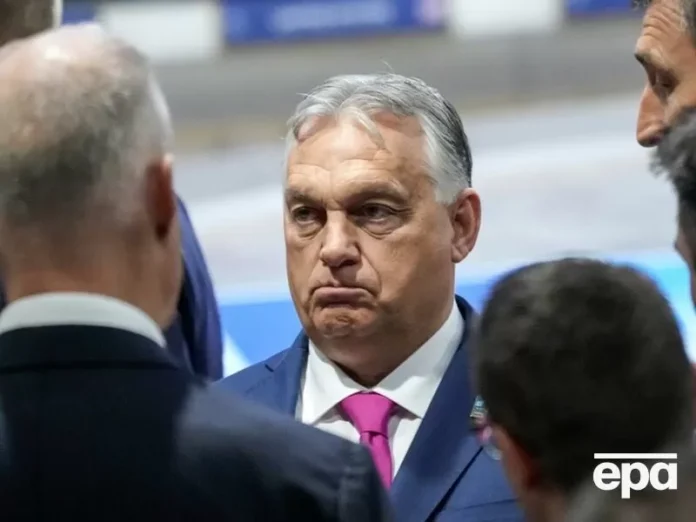Hungary’s Refusal to Support Ukraine and Oppose Its NATO Membership at Washington Summit
At the recent NATO summit in Washington, Hungary made a controversial decision to reject any military assistance to Ukraine and also spoke out against its potential membership in the Alliance. This news, reported by Bloomberg on July 13th, has sparked concern and disappointment among many in the international community.
According to sources, Hungarian Prime Minister Viktor Orban stated that his country would not support any military aid to Ukraine, citing concerns about the ongoing conflict in the Donbass region and the potential for further escalation. He also expressed opposition to Ukraine’s potential membership in NATO, stating that it would only serve to further strain relations with Russia.
This stance taken by Hungary has been met with criticism from other NATO members, who see it as a betrayal of the Alliance’s values and principles. Ukraine, which has been seeking closer ties with NATO in the face of ongoing aggression from Russia, has also expressed disappointment and frustration at Hungary’s refusal to support them.
The decision by Hungary to reject any military assistance to Ukraine is particularly concerning given the current state of affairs in the region. The conflict in the Donbass has been ongoing since 2014, resulting in thousands of deaths and the displacement of millions of people. Despite efforts to reach a peaceful resolution, tensions remain high and the situation is far from being resolved.
Many see Hungary’s stance as a reflection of its close ties with Russia, which has been a vocal opponent of Ukraine’s potential membership in NATO. This is not the first time that Hungary has taken a stance that goes against the interests of its NATO allies. In 2017, the country vetoed a joint statement by the Alliance condemning Russia’s annexation of Crimea.
The decision by Hungary to reject any military assistance to Ukraine also raises questions about its commitment to the collective defense of NATO. As a member of the Alliance, Hungary is expected to uphold the principle of collective defense, which states that an attack on one member is considered an attack on all. By refusing to support Ukraine, Hungary is essentially undermining this principle and potentially weakening the Alliance as a whole.
Furthermore, Hungary’s opposition to Ukraine’s potential membership in NATO is seen as a setback for the country’s efforts to join the Alliance. Ukraine has been seeking closer ties with NATO as a means of strengthening its security and defense capabilities in the face of ongoing aggression from Russia. However, with Hungary’s opposition, it may be more difficult for Ukraine to gain the necessary support for membership.
In response to Hungary’s stance, NATO Secretary General Jens Stoltenberg emphasized the importance of maintaining unity within the Alliance. He stated that while there may be differences among member states, it is crucial for them to work together and support each other in the face of common challenges.
The rejection of military assistance to Ukraine and opposition to its potential membership in NATO by Hungary also has wider implications for the region. It sends a message to other countries in the region, particularly those with close ties to Russia, that they can also reject the principles and values of NATO without facing consequences.
In conclusion, Hungary’s decision to reject any military assistance to Ukraine and oppose its potential membership in NATO at the recent summit in Washington has sparked concern and disappointment among its allies. It raises questions about Hungary’s commitment to the collective defense of NATO and undermines efforts to strengthen the Alliance. It also has wider implications for the region and sends a concerning message to other countries. It is crucial for NATO to address these issues and work towards maintaining unity and solidarity within the Alliance.

